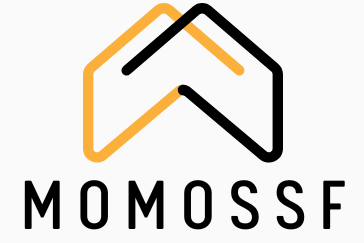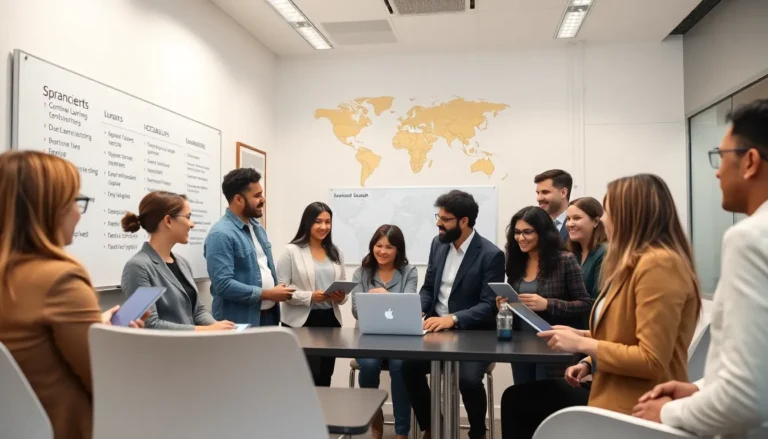Traveling the world is a thrilling adventure, but nothing beats the excitement of connecting with locals in their own language. Imagine ordering a croissant in Paris without pointing at the menu or haggling for souvenirs in a bustling market in Marrakech without resorting to charades. Learning a language for travel isn’t just practical; it’s like unlocking a secret door to a culture’s heart.
Table of Contents
ToggleImportance Of Learning A Language For Travel
Learning a language for travel significantly enhances experiences and interactions. It opens doors to authentic connections and deeper cultural appreciation.
Enhancing Cultural Experiences
Experiencing local traditions and customs enriches travel. Understanding cultural nuances through language can lead to vibrant conversations and shared stories. Engaging with locals fosters mutual respect and curiosity. Discovering hidden gems becomes easier when travelers can ask questions in the local language. Communicating in the native tongue often results in unique opportunities, such as invitations to local events or festivals. Building relationships with residents creates a more immersive experience, making travel memorable.
Improving Communication Skills
Effective communication skills play a vital role in travel. Mastering basic phrases allows easier navigation in unfamiliar environments. Travelers often find it beneficial to learn greetings, directions, and common expressions. Such skills reduce misunderstandings and enhance safety. Locals appreciate efforts to speak their language, resulting in more friendly interactions. Increased confidence in communicating can lead to more enriching experiences and adventures. Furthermore, language learning encourages adaptability, which is essential in diverse travel situations.
Best Languages To Learn For Travel
Learning specific languages can enhance travel experiences significantly. Mastering a language opens doors to deeper cultural connections and smoother interactions.
Popular Travel Destinations
Spanish ranks high among the languages to learn for travel. With over 20 countries using Spanish as an official language, it allows access to vibrant cultures in Spain, Mexico, and various Latin American nations. French also holds importance, especially in France and parts of Africa, where it facilitates communication in many tourist hotspots. Mandarin Chinese stands out due to China’s growing influence and popularity among travelers. Arabic becomes essential when traveling to countries in the Middle East and North Africa, offering insights into rich histories and traditions.
Regional Language Considerations
When visiting a region, it’s wise to consider local dialects. In Italy, regional variations exist, such as Sicilian or Neapolitan, which enhance the travel experience. Portuguese, while essential in Portugal and Brazil, also varies in usage across these regions. Knowing basic phrases in local dialects can foster better interactions. Local languages help navigate less touristy areas. Cultural nuances often come alive through local languages, creating memorable encounters.
Tips For Learning A Language Efficiently
Learning a language for travel becomes more productive with the right strategies. Implementing effective techniques can significantly enhance the learning process.
Setting Realistic Goals
Setting realistic goals makes the journey manageable. Define specific targets, such as mastering ten essential phrases within a week. Keeping goals measurable helps track progress consistently. Focusing on practical vocabulary suited for travel situations proves beneficial. For instance, prioritize phrases for ordering food, asking for directions, and greeting locals. Achieving smaller milestones maintains motivation and encourages continued learning. Integrating language practice into daily routines cultivates familiarity without overwhelming oneself.
Utilizing Technology And Apps
Utilizing technology and apps simplifies language learning. Many platforms offer interactive lessons tailored for travelers. Popular apps like Duolingo and Babbel provide structured courses focused on conversational skills. Engaging with these resources fosters language retention through gamification and immediate feedback. Using language exchange apps connects learners with native speakers, enhancing conversational practice. Watching videos or listening to podcasts in the target language exposes learners to authentic pronunciation and cultural nuances. Leveraging technology makes learning both accessible and enjoyable, reinforcing skills needed for effective communication while traveling.
Practical Language Learning Strategies
Language learning for travel benefits from practical and immersive approaches. Engaging directly with the culture deepens understanding and boosts retention of vocabulary.
Immersive Learning Experiences
Immersive learning involves surrounding oneself with the target language. Travelers can watch local films or listen to native music to familiarize themselves with pronunciation and idioms. Attending language immersion programs abroad provides hands-on practice in real-world settings. Participating in cooking classes or workshops can enhance vocabulary while experiencing local traditions. Interactive activities cultivate natural language use, reinforcing learning.
Engaging With Native Speakers
Engaging with native speakers elevates language skills significantly. Strike up conversations in cafes or markets to practice phrases learned. Participating in language exchange events fosters reciprocal learning and cultural exchange. Online platforms also connect learners with native speakers for virtual conversations. Using social media can facilitate daily interactions, making language practice feel organic and fun. Enhanced communication leads to richer travel experiences and deeper cultural connections.
Traveling the world opens doors to unforgettable experiences and connections. By learning a language, travelers can engage more deeply with the cultures they encounter. It’s not just about mastering phrases; it’s about fostering relationships and understanding local customs.
The journey of language learning enhances every aspect of travel. From navigating bustling markets to sharing stories with locals, each interaction enriches the adventure. Embracing the challenge of learning a new language can transform a trip into a truly immersive experience.
Ultimately, the benefits of language learning extend beyond communication. They create lasting memories and foster a sense of belonging in foreign lands. So whether it’s Spanish, French, Mandarin, or Arabic, investing time in language skills is a step toward making travel more meaningful.






